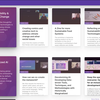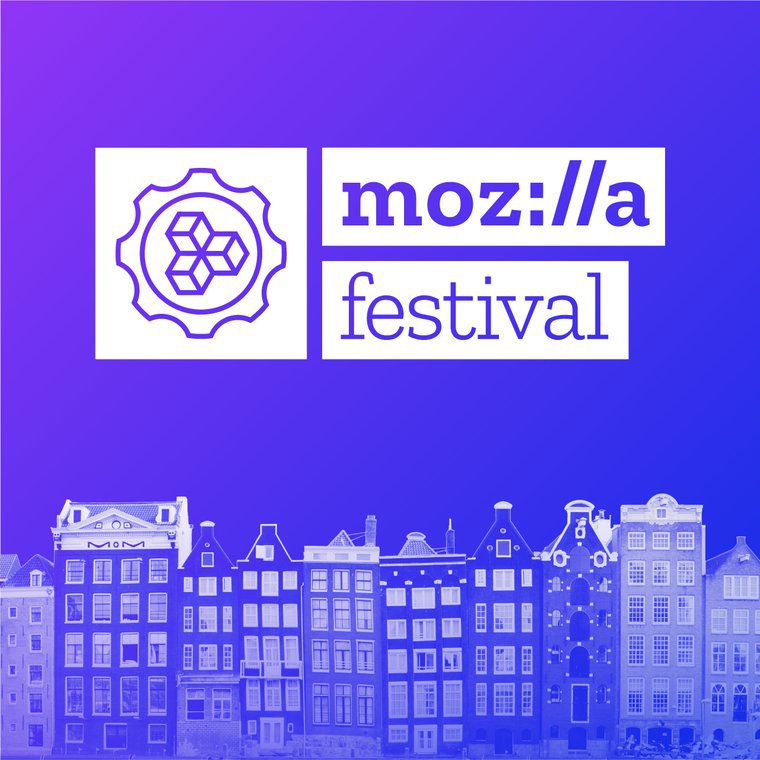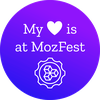
If you’ve been to MozFest over the years, there is a good chance you have run into Mark Boas. He’s been in the MozFest community for as long as MozFest has been around. From Facilitator, to Wrangler, to collaborator, to participant, he’s not missed an opportunity to tap into the incredible work happening at MozFest – and add to it!
We recently caught up with Mark to learn more about the progress of the work he has brought to MozFest. His story is inspiring!
Here’s what he had to share:
How does your MozFest story begin?
It began in 2010 at its predecessor – the Drumbeat festival in Barcelona. My mother’s family are from Barcelona so I have a strong affinity with the area. I was also a big fan of the Firefox browser and so I thought I’d go along.
Around that time I had been thinking about ways to time speech and decided to submit a simple demo, which was accepted for the Drumbeat Science Fair.
When I arrived I didn’t know anybody and was quite nervous, but the atmosphere was very friendly and I met a lot of people with whom I’m still in touch with today.
How have you contributed to the festival since you first joined the MozFest community?
I have attended every MozFest since, gradually becoming more involved. I started by facilitating sessions and more recently have helped out as a Wrangler and a Wrangler Mentor.
The timed-speech demo became Hyperaud.io which I demoed several times subsequently at the Science Fair and over the last couple of years I’ve worked with Mozilla to produce interactive transcripts of MozFest sessions and interviews.
How did MozFest serve as a catalyst for your work?
In many ways! By demoing Hyperaudio at MozFest Science Fair, I was able to get some great feedback and, more importantly, encouragement and support from the MozFest community.
I was also encouraged to apply for the 2012 Knight-Mozilla OpenNews fellowship, which I was selected for. This gave me the opportunity to apply Hyperaudio based technology in the newsroom – the most notable example being Palestine Remix for Al Jazeera. I’m in touch with other OpenNews fellows daily and continue to work with many of them!
Also thanks to MozFest, for a couple of years I was co-founder and CTO of an actual business, called Trint. My co-founder – a journalist – was introduced to me at MozFest. That business, also based upon Hyperaudio technology, grew to become a company with over 100 employees.
I’ve always felt at home at the Mozilla Festival – it’s an amazing community who have given me confidence! But in the end it’s about more than just a catalyst for “our” work, Hyperaudio became a community project and I hope that I helped encourage others to adopt the idea of timed text in other contexts. From the Hyperaudio community the wider TextAV community was born – holding meetups in New York and London.
MozFest was also an opportunity to meet with other organisations – one of which – BBC News Labs, the Hyperaudio team continues to work with to this day.
More recently we have been working on a new version of the Hyperaudio Platform, thanks to funding from the Grant For The Web programme. We applied the technology to conferences which we tried out with MozFest this year. This allowed me to connect with facilitators like Soledad Magnone who facilitated an excellent session on Caribbean Digital Rights and was very active in correcting and translating the content. I’m happy to say that we are now working together to apply Hyperaudio to the No Minor Futures initiative which Soledad heads up (and my daughter is also taking part in).
What are you doing now?
Sometimes I feel like a broken record because I have been working on Hyperaudio for over a decade now, but guess what? I’m still as enthused as I was when I began and I’m still working on it!
These days I do less development and more product-related work, but I’m excited about all the possible applications and the idea of making something that is both open source and self-sustaining. (I currently spend a fair amount of time applying for funding).
On the side, the Hyperaudio Team does some consultancy work for organisations such as the BBC. It’s surprising even to me how much the whole timed-text thing has taken off!
How can the MozFest community contribute?
In several ways! We are always on the look out for volunteers to help us correct and translate MozFest session transcripts. We’ve run one Editathon so far and would like to run more.
We’re also looking for other conferences to use Hyperaudio with, we’re particularly interested in helping non-profits and public benefit organisations make their content more accessible. So if anybody is involved with other conferences or similar that would benefit from Hyperaudio, please get in touch.
Also, if you think Hyperaudio would be useful for other applications, such as education, lecture capture, podcasting etc, I’d love to talk to you. We have open source libraries and a Wordpress plugin that can help with custom applications. Recently Ian Forrester (another keen participant of MozFest over the years) used our Hyperaudio Lite library to power his DJ Mix pages.
What are your future plans?
Ideally I’d like to work on Hyperaudio full-time and continue to build the team, so the big focus is making it all sustainable. No mean feat. Additionally I’d love to build community around the open source side of things.
I’d really like to see Hyperaudio being used to help teach media literacy. The trial that we did a few years ago, in a school here in Italy, seemed to go really well, so I’m hopeful that it can be a useful tool.
MozFest Movers: Where Are They Now?
This story is part of the Where Are They Now series, spotlighting ‘MozFest Movers,’ the amazing people and projects that have used MozFest as a catalyst for their ongoing work. The series uplifts opportunities for the internet health movement to be a part of the exciting solutions coming out of this work.
MozFest is part art, tech and society convening, part maker festival, and the premiere gathering for activists in diverse global movements fighting for a more humane digital world. To learn more, visit www.mozillafestival.org.
Sign up for the MozFest newsletter here to stay up to date on the latest festival and internet health movement news.








